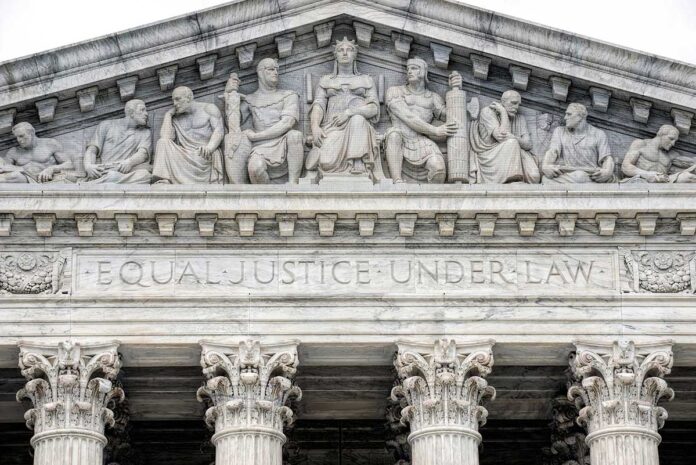After President Bush endorsed the anti-gay Federal Marriage Amendment in 2004, I was quoted in the lede of a front-page Washington Post story that 25 years after I took an oath as a federal employee to defend the Constitution, the president was trying to write me out of it, and that was obscene.
I thought this might anger the Bush-appointed CFO at the U.S. Department of Labor for whom I worked, but instead he was envious. Mind you, finding that a political appointee was driven more by ambition than principle was no great shock. Seventeen years later, GOP officials fear Trump supporters more than they love their party or their country.
I had little reason in 2004 to fear being blackballed for my outspokenness, thanks to civil service protections won by the generation of activists that preceded mine. The 1980 interpretation of the Civil Service Reform Act by the Office of Personnel Management, on which my job protections rested, was one of the few legislative protections for queer folk prior to the 2010 repeal of the military gay ban. Most of our community’s legal protections have been won through litigation.
Which brings us to the Supreme Court. Its conservative supermajority, engineered by Senate Republican leader Mitch McConnell, imperils most of the gains LGBTQ folk have won at the federal level. We may not be the first group to see its rights curtailed, but we are on the hit list.
A few years ago, when Ruth Bader Ginsburg was still on the Court, some people expressed confidence that marriage equality under Obergefell v. Hodges would not be threatened by a more conservative court. The reasoning, essentially, was that permitting gays to marry posed no threat to fetuses, so we would be fine.
That was wishful thinking. Obergfell, like the elimination of sodomy laws under Lawrence v. Texas, was fruit of the same tree as contraception under Griswold v. Connecticut and Eisenstadt v. Baird, and abortion under Roe v. Wade. Former senator Rick Santorum, who disagreed with Griswold, stated that “contraception is … a license to do things in a sexual realm that is counter to how things are supposed to be,” though he denied wanting to overturn contraception rights.
This may remind you of assurances by Trump nominees to the Court during their confirmation hearings that Roe was settled precedent, and by Sen. Susan Collins that she was concerned.
An amicus brief for Texas Right to Life by former Texas solicitor general Jonathan F. Mitchell in Dobbs v. Jackson Women’s Health Organization makes it clear that all constitutional rights based on substantive due process — a legal theory on limiting government infringement of liberties — face the chopping block.
Mitchell writes that the news is not good “for those who hope to preserve the court-invented rights to homosexual behavior and same-sex marriage…. These ‘rights,’ like the right to abortion from Roe, are judicial concoctions, and there is no other source of law that can be invoked to salvage their existence.” For people like Mitchell, everything not compulsory is forbidden.
The fact that most Americans support abortion rights and marriage equality does not matter to Republican politicians, who would much rather choose their voters than risk voters not choosing them.
The lunacy, if anything, is metastasizing. South Dakota Governor Kristi Noem, calling for returning prayer to public schools, says, “We’ve seen our society, our culture, degrade as we’ve removed God out of our lives.”
How is it the job of politicians to put God in our lives? Noem claims that Biden administration actions “are not biblical.” I wish to assure her that Republican denial over climate change may yet bring a return of the plagues from the Book of Exodus. The trouble is not so much that Noem and her compatriots live on what Rachel Maddow calls Earth Two, but that they are determined that the rest of us should join them.
When marriage equality advocacy began in earnest in the 1990s, many gay people were opposed, either because they did not wish to marry or they feared that rocking the boat would provoke an anti-gay backlash. That made no sense. What kind of society are we if we only respect our own choices? As for backlashes, they are what anyone faces who defends their right to exist.
Haters are always waiting in the tall grass for us. If we on Earth One want to defeat them, we need to quit our evasions and get our fight on.
Rick Rosendall is an activist and writer based in Washington, DC. He is a past president of the Gay and Lesbian Activists Alliance of Washington and a cofounder of the Gay Men’s Chorus of Washington.
